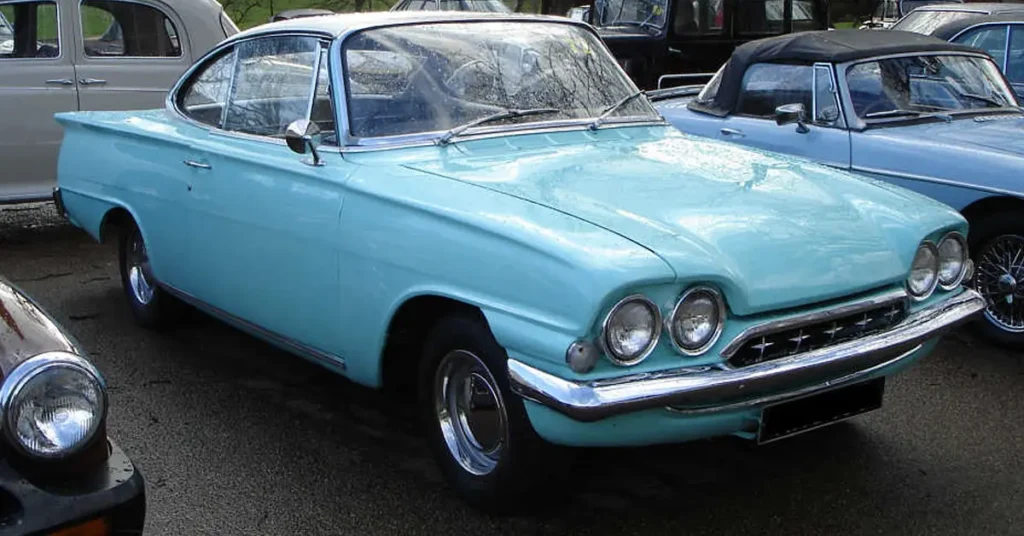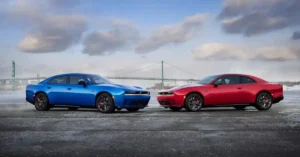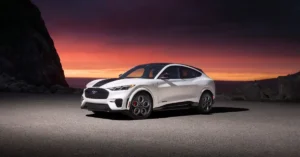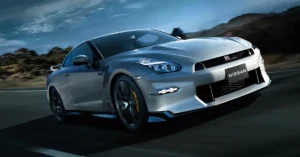Photo By: https://commons.wikimedia.org/
Even the most practical car brands occasionally throw caution to the wind. Sometimes they produce vehicles that shock, delight, or even confuse the market. These cars combine audacious design, groundbreaking engineering, or sheer extravagance and yet they come from manufacturers better known for reliability and sensible choices.
In this article, we take a tour through eight remarkable cars that defied expectations. From Bugatti’s opulent Royale to Buick’s elegant Riviera, each story showcases ambition, risk, and sometimes spectacular failure. Whether you’re a collector, a retro car enthusiast, or just curious about automotive history, these tales show what happens when carmakers dare to dream.
Bugatti Royale (1927)
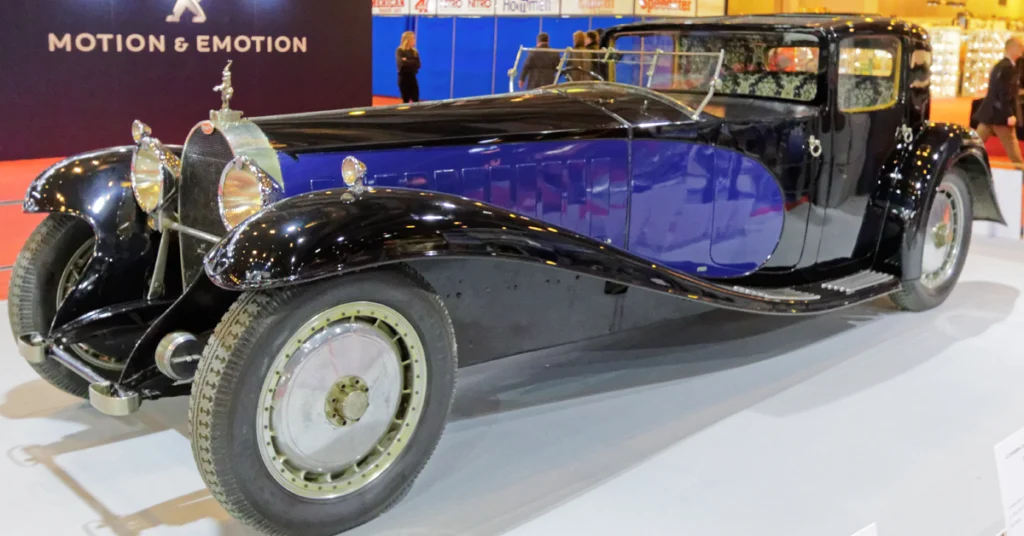
Photo By: Thesupermat https://commons.wikimedia.org/w/index.php?curid=47155953
Overview: Bugatti, famous for racing machines and high-performance GTs, ventured into extreme luxury with the Type 41, better known as the Royale.
Imagine a car longer than some modern buses, with a 12.8-litre engine producing effortless power. Bugatti designed the Royale for royalty, complete with hand-crafted wood, leather interiors, and a presence that dominated any street. Yet, the Great Depression meant only six Royales ever found owners. Interestingly, while these cars were rare, the engines themselves were used in French trains, transporting ordinary citizensquite the twist for a machine built for kings.
Tips for enthusiasts: Spotting a Royale today is nearly impossible outside museums or private collections, but learning about its engineering and history can inspire modern car design appreciation.
Learn more about Bugatti Royale
Citroën Traction Avant (1934)
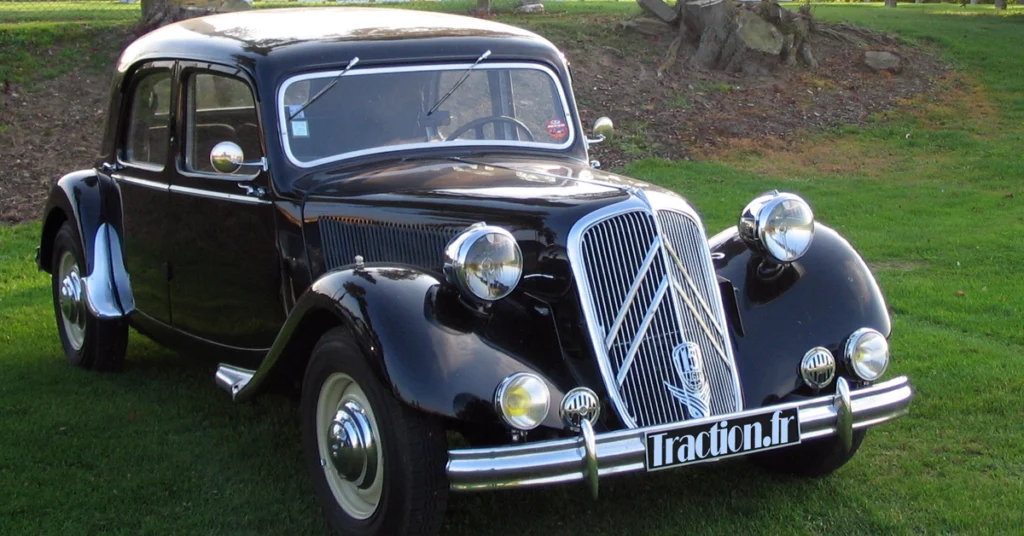
Photo By: Traction https://commons.wikimedia.org/w/index.php?curid=5909414
Overview: Citroën risked everything with the Traction Avant, a car decades ahead of its time.
With front-wheel drive, unibody construction, hydraulic brakes, and independent front suspension, the Traction Avant was a technological marvel. Its development nearly bankrupted Citroën, requiring Michelin’s intervention. Yet, it was a hit, influencing European car design for decades.
Fun anecdote: Many Traction Avants served in WWII, valued for their robustness and agilityproving that innovation can have unexpected applications.
Interactive tip: Look for surviving models at classic car events in Europe or UAE gatherings; notice the engineering details that were revolutionary for the 1930s.
More on Citroën Traction Avant
Chrysler Airflow (1934)
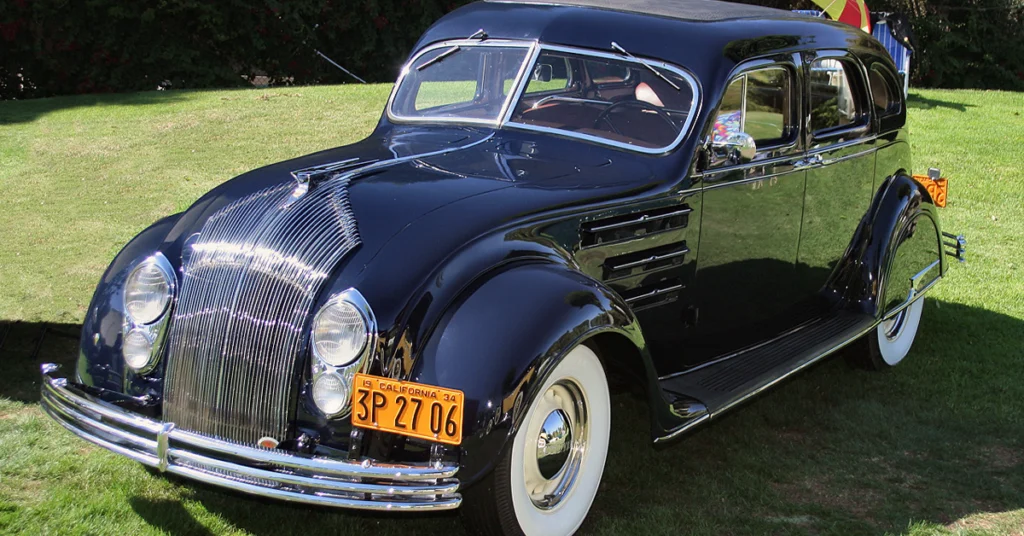
Photo By: Rex Gray https://commons.wikimedia.org/w/index.php?curid=23084444
Overview: Chrysler’s Airflow combined aerodynamic ambition with groundbreaking engineeringbut the market wasn’t ready.
The car’s unibody construction and streamlined bodywork improved efficiency and handling, but its radical styling polarized buyers. Even toned-down versions struggled to attract customers. Chrysler soon abandoned such extreme designs but laid the foundation for post-war aerodynamic concepts.
Collector insight: The Airflow remains a fascinating study in automotive design risk, showing how innovation sometimes needs timing to succeed.
Edsel (1958)
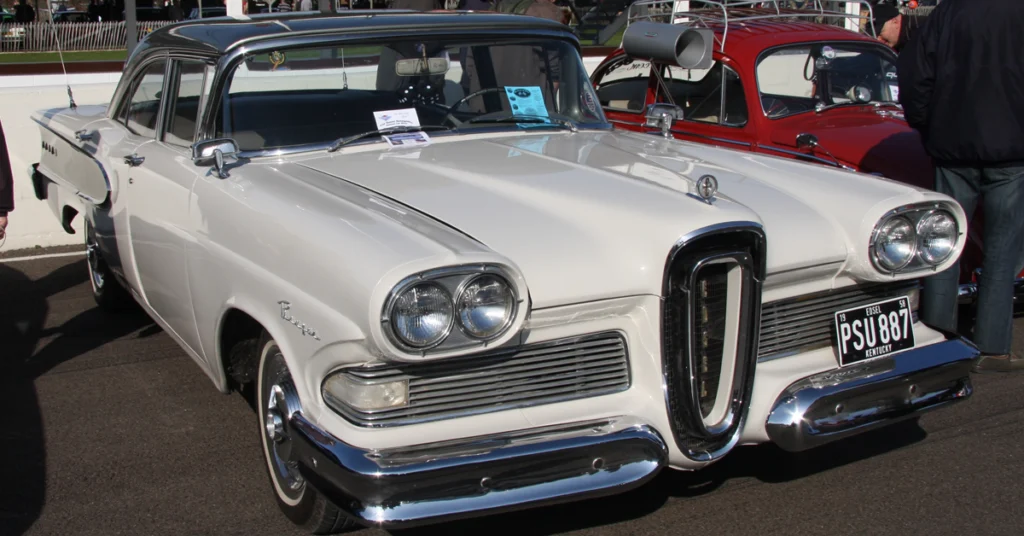
Photo By: https://en.wikipedia.org/wiki/File:1958_Edsel_Ranger.jpg
Overview: Ford’s Edsel aimed to create a new mid-range brand, but it became a lesson in market misjudgment.
Its vertical grille was iconic, and it offered advanced features for the time, but poor marketing, controversial styling, and a recession led to disappointing sales. Ironically, the factories and production lines were soon used to launch the Mustang, one of Ford’s greatest successes.
Fun tip: For UAE enthusiasts attending international classic car shows, spotting an Edsel is a conversation startermany admire its bold design despite commercial failure.
Ford Consul Classic (1961)
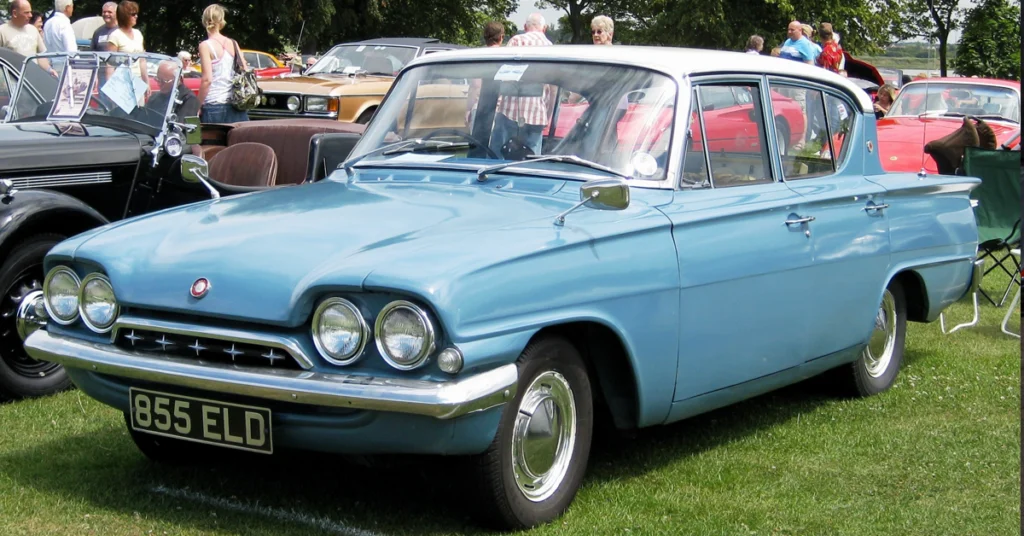
Image By Charles01: https://commons.wikimedia.org/w/index.php?curid=7216210
Overview: Ford of Britain tried bold styling that challenged conservative tastes with the Consul Classic.
Its reverse-angled rear window and American-inspired proportions proved polarizing. Though comfortable, the car failed to captivate buyers and was replaced by the Corsair within three years.
Story: The Consul Classic shows how European sensibilities often clash with American styling cues. Yet, it’s an intriguing study in risk-taking design.
Chevrolet Corvair (1960)
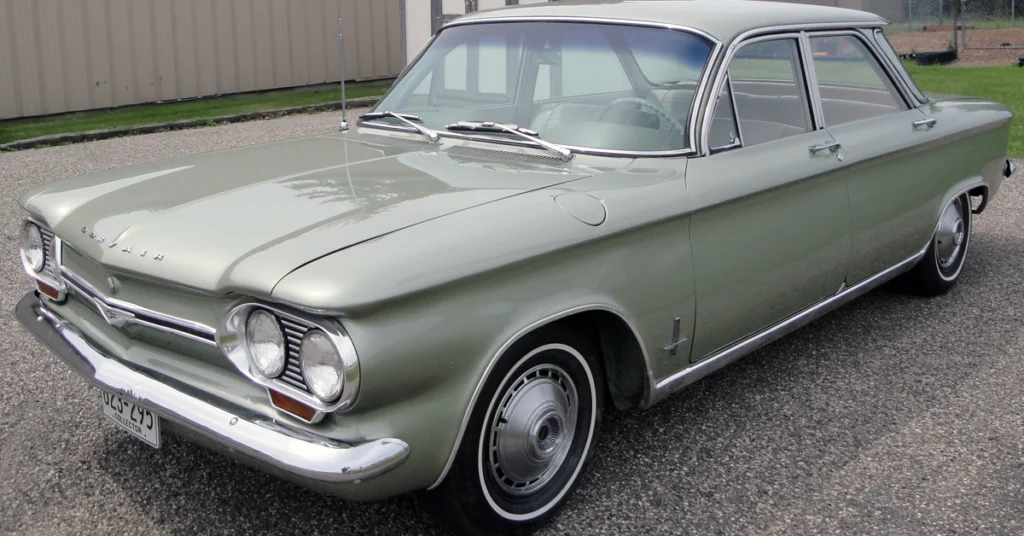
Photo By: Greg Gjerdingen https://commons.wikimedia.org/w/index.php?curid=144330669
Overview: The Corvair pushed GM into bold engineering territory with a rear-mounted air-cooled engine.
Early models faced handling controversies due to swing-axle suspension, sparking debates over safety. Later revisions corrected these issues, but the Corvair’s reputation lingered. It remains a symbol of both daring innovation and the importance of execution.
Interactive tip: Driving a restored Corvair today highlights its compact handling and engineering ingenuity, showing how bold thinking can be ahead of its time.
Volvo 1800 (1961)

Photo By: Charles01 – https://commons.wikimedia.org/w/index.php?curid=7440884
Overview: Volvo surprised fans with the 1800 sports coupea blend of elegance, performance, and practicality.
With sleek lines, a lightweight chassis, and durable inline-4 engines, the 1800 offered sporty handling without compromising reliability. The estate variant introduced later added practicality. Roger Moore famously drove one in The Saint, boosting its cultural status.
Collector insight: Volvo enthusiasts often regard the 1800 as one of the brand’s finest achievements, blending aesthetics and engineering seamlessly.
Buick Riviera (1963)
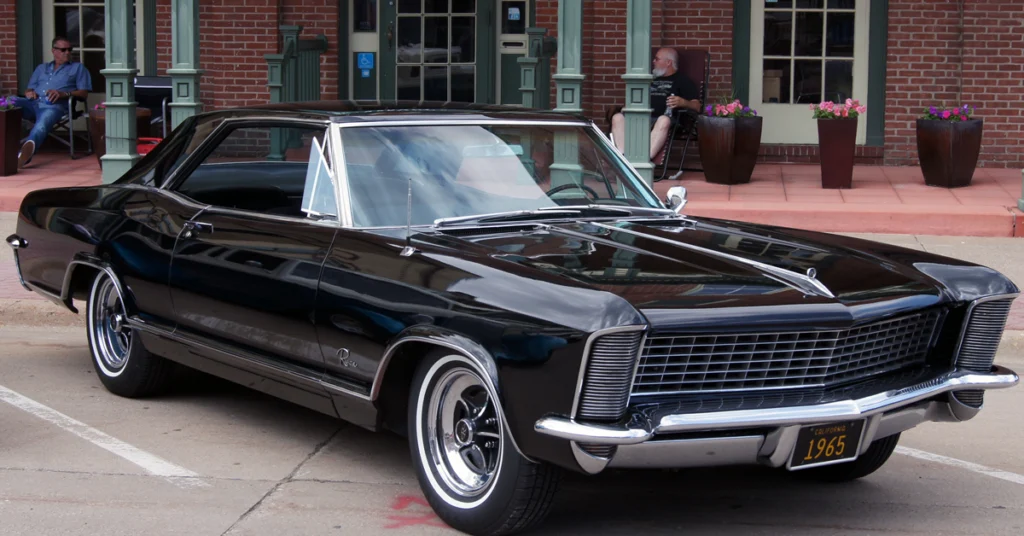
Photo By: Greg Gjerdingen from https://commons.wikimedia.org/w/index.php?curid=145531709
Overview: Buick broke away from tradition with the Riviera, crafting a luxury coupe with clean, visually striking lines.
Its V8 engines provided smooth, powerful performance, while the simplified styling influenced future luxury designs. The Riviera’s elegance captured attention, demonstrating that conservative brands can produce bold classics.
Interactive tip: For classic car shows in Dubai or Abu Dhabi, the Riviera still turns heads. Its design shows that simplicity can have as much impact as extravagance.
Learn more about Buick Riviera
Conclusion: Bold Moves That Shaped Automotive History
These eight cars prove that innovation and audacity often emerge from the most unexpected places. Sensible brands sometimes take risks that redefine design, engineering, and performance. From Bugatti’s extravagant Royale to Volvo’s elegant 1800, these vehicles inspire collectors, enthusiasts, and anyone who appreciates automotive creativity.
LSI Keywords: classic cars, rare vintage vehicles, automotive innovation, retro coupe history, European and American automotive experiments
MotorHub UAE Support: Explore Iconic and Rare Cars
Experience Automotive History Across the Emirates
At MotorHub, we help UAE enthusiasts explore and maintain rare and classic vehicles. Whether driving Dubai streets, attending Abu Dhabi car shows, or navigating desert terrain in a vintage coupe, our experts offer guidance on inspections, restorations, and certified service connections. Enjoy hands-on engagement with automotive history while keeping your iconic cars in top condition.
classic cars, retro cars, bold car designs, automotive history, rare vintage vehicles, Bugatti Royale, Citroën Traction Avant, Chrysler Airflow, Ford Edsel, Chevrolet Corvair, Volvo 1800, Buick Riviera, UAE classic car enthusiasts
